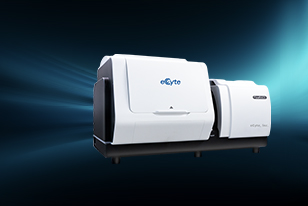RACS-Seq is an innovative approach for single-cell analysis. It utilizes the ramanome technology platform to analyze cells at the single-cell level, providing valuable insights into their metabolic phenome and genome.
Key Features:
- Single-Cell Analysis: RACS-Seq integrates single-cell identification, viability assessment, and source tracking without the need for traditional culturing methods.
- Rapid Identification: The technology quickly identifies species by analyzing the Raman spectrum of individual cells.
- Viability Assessment: RACS-Seq evaluates cell viability and metabolic vitality, crucial for understanding cell behavior.
- Antimicrobial Susceptibility Testing: It performs culture-independent AST, determining the cell's susceptibility to antimicrobial agents.
- Source Tracking: RACS-Seq uses Raman-activated cell sorting to trace the cell's source.
- Automation and Speed: The workflow is automated, providing rapid results compared to conventional methods.
RACS-Seq offers rapid, accurate, and comprehensive single-cell analysis.

References:
1. Jian Xu*, Jianzhong Zhang, Yingchun Xu, Yi-Wei Tang, Bo Ma, Yuzhang Wu*. Single cell metabolic phenome and genome via the ramanome technology platform: Precision medicine of infectious diseases at the ultimate precision? iLABMED, 2023, 1(1): 5-14.
2. Jia Zhang#, Lihui Ren#, Lei Zhang#, Yanhai Gong#, Teng Xu, Xiaohang Wang, Cheng Guo, Lei Zhai, Xuejian Yu, Ying Li, Pengfei Zhu, Rongze Chen, Xiaoyan Jing, Gongchao Jing, Shiqi Zhou, Mingyue Xu, Chen Wang, Changkai Niu, Yuanyuan Ge, Bo Ma, Gaishuang Shang, Yunlong Cui*, Su Yao*, Jian Xu*. Single-cell rapid identification, in situ viability and vitality profiling, and genome-based source tracking for probiotics products. iMeta, 2023, 2(3): e117.
3. Xiaoyan Jing#, Yanhai Gong#, Huihui Pan, Yu Meng, Yishang Ren, Zhidian Diao, Runzhi Mu, Teng Xu, Jia Zhang, Yuetong Ji, Yuandong Li, Chen Wang, Lingyun Qu, Li Cui, Bo Ma*, Jian Xu*. Single-cell Raman-activated sorting and cultivation (scRACS-Culture) for assessing and mining in situ phosphate-solubilizing microbes from nature. ISME Communications, 2022, 2(1):106.








